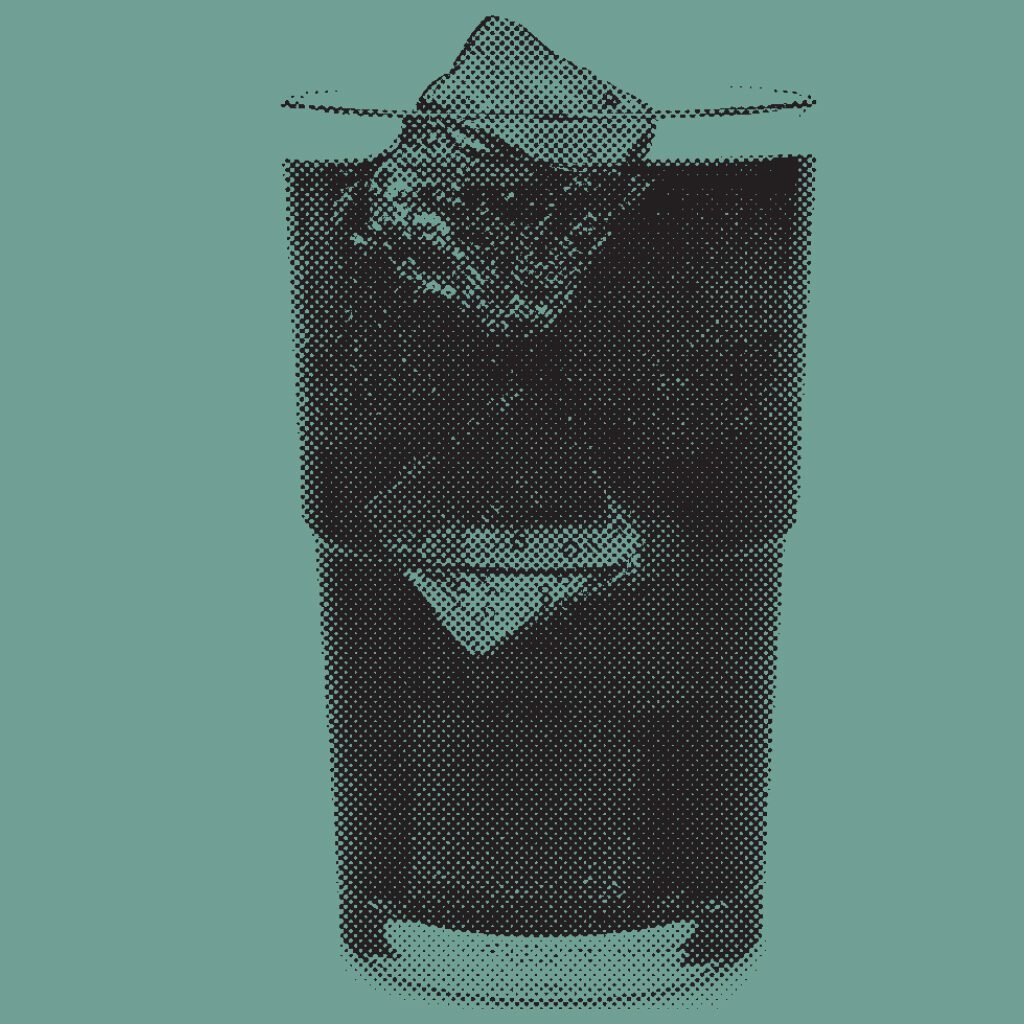Health in a Minute | For Her
My Workout Stopped Working - NOW WHAT?
When you hit a physical fitness plateau it can be especially frustrating – you’re already working hard to stay active and are making time for workouts. Aren’t you doing everything right? So why aren’t your endurance and strength increasing anymore?
If you find yourself struggling to see or feel a difference when you do your usual cardio routine or lift weights, there are several things you can try to re-start results. First of all, consider changing your program, even slightly. Mix in new exercises and movements, work different body areas, and try alternating types of cardio.
If you still don’t see a difference, try one of two things to amp up your results in cardio and strength training:


High Intensity Interval Training (HIIT) workouts. These are workouts that alternate between a few seconds to minutes of intensely strenuous exercises followed by short periods of recovery (lower intensity). This allows your heart rate to reach optimal levels while training your heart to recover quickly.
Lift to failure. This is where, while lifting weights, you continue to do reps until you cannot do anymore.
Remember, it’s important to eat a high protein meal within 30 minutes to an hour of your workout to encourage beneficial recovery.
Source: The Mayo Clinic
Be Optimistic!



Audrey Hepburn’s famous quote, “Happy girls are the prettiest,” could be amended to say “Happy girls are the healthiest.”
In a study published by The American Journal of Epidemiology this year and recently shared by the Mayo Clinic, “Optimistic women live longer than their pessimistic peers.”
The study, which was conducted with 70,000 women, found that those who were more optimistic had a 6% lower risk of mortality.
This was primarily linked to their ability to cope with stress, which lowers the body’s ability to fight disease and can cause cardiovascular disease.
Stress raises cortisol (the stress hormone) levels which weakens your body’s ability to fight infections. It also raises blood pressure, which puts stress on your heart and increases your chances of developing heart disease.
The report supported that if you have a positive outlook and you anticipate good occurrences rather than worrying, you are less likely to suffer from constant stress and harmful cortisol levels.
Lower stress paired with healthy habits and healthy coping abilities correlates to a potentially longer lifespan.
Source: The Mayo Clinic, The American Journal of Epidemiology
Health in a Minute | For the Whole Family
Pros & Cons of Coconut Oil
Coconut oil is everywhere from health and beauty aisles to headlines. And the debate over its health benefits continues. The most recent information from the Mayo Clinic and WebMD has debunked many of the preliminary claims that coconut oil is beneficial to heart health. But it does have other positive health applications. Let’s look at the “good” and the “bad” of this interesting food and beauty product.
Coconut oil contains a large amount of saturated fats, and consequently raises your overall cholesterol count. When consumed, it does raise your HDL (the reason behind many claims of its heart health benefits), it also raises LDL. That’s why, according to WebMD, it’s a heart health neutral – at best.



But coconut oil is still very beneficial in topical application to the skin and hair. It’s an effective moisturizer due to its components which include: saturated fats (which not only add, but also seal in moisture), fatty acids (which contain disinfecting, antimicrobial properties), vitamin E (packed with antioxidants, vitamin E has numerous benefits for skin and hair health), and proteins (which help cellular healing and repair).
LDL / “Bad” cholesterol that contributes to the formation of plaque in arteries.
HDL / “Good” cholesterol that gets rid of LDL.
Sources: WebMD, The Mayo Clinic, Organic Facts
Picnic Safety
In the heat of summer, a favorite activity involves throwing down a blanket, opening a cooler or basket, and enjoying a meal outside together. However, traveling with food can compromise food safety. Check out the Mayo Clinic’s top four tips for a safer picnicking experience.
Keep it Cool: A good rule of thumb is to not remove refrigerated foods from a chilled environment (such as a cooler) for longer than two hours. However, on days that are particularly hot (90 degrees or higher), they should really only be exposed to environmental temperatures for an hour or less.
Heat Things Up: All proteins should be reheated to at least 165 degrees in order to kill bacteria – which tend to thrive on proteins.
Prepare for Pests: Keep food in sealable, plastic containers and covered when not in use. Sugars in drinks, desserts, fruits, or sauces will attract insects.
“When in doubt, throw it out!”: If it looks questionable or you can’t remember how long it has been exposed to the elements – toss it! It’s better to be safe than sorry. After all, you don’t want yourself or your guests to get sick.
Source: The Mayo Clinic
Health in a Minute | For New Moms
Folic Acid & Childhood Obesity



Most moms-to-be know how important folic acid is to help prevent a neural tube defect known as spina bifida. Obstetricians often recommend supplementing folic acid in addition to choosing dark leafy greens that are natural sources of the nutrient. But did you know that folic acid can actually help reduce the risk for childhood obesity?
As the Mayo Clinic explains, recent studies have shown that pregnant women with low folic acid levels had a 45% increased risk of having a baby that developed obesity later in life. Women who were obese themselves and also had lower levels of folic acid had an ever greater risk of having a baby that developed obesity later.
The National Food and Drug Administration recommends pregnant women get at least 1,000 micrograms of folic acid per day.
Source: The Mayo Clinic
Spit Up Concerns?
Spit up is a normal part of infancy, with half of all babies spitting up during their first three months. It happens because a muscle between the esophagus and stomach hasn’t fully matured and therefore isn’t able to keep the baby’s stomach contents in place. But several aspects of spit up can raise questions of concern in new parents…
The amount: A spit up stain or mess on the floor can look overwhelmingly large, but usually, it is only a small fraction of what they’ve eaten.
The frequency: Babies can spit up numerous times a day, and it isn’t always directly following a feeding. Sometimes, the frequency of spit ups can be worrisome, but the Mayo Clinic reminds us that it’s totally normal.



Does spit up indicate a problem?
- Talk to your baby’s doctor if:
- Baby isn’t gaining weight properly
- Spit up is yellow, green, contains blood, or has the appearance of coffee grounds
- Baby also has breathing difficulties or other symptoms of illness
- Baby refuses food/feedings
- Spitting up begins after six months of age
Tips to reduce regurgitation:
- Don’t overfeed (try smaller amounts, more frequently).
- Keep baby upright (during feedings and for at least 30 minutes afterward).
- Always burp baby (during and after feeding to reduce air in baby’s tummy).
- Lay baby down for sleep on their back.
Sources: The Mayo Clinic, Parents.com
Health in a Minute | For Mom
Food for Thought
With school just around the corner, it never hurts to refocus nutrition at home and start exploring meal plans that can boost your children’s brain power.
According to the Mayo Clinic, if you’re looking to support your child’s academic performance, there’s no one super food that will do the trick. But here’s a quick look at the recommended staples of a well-balanced brain diet for your kids (and what you should avoid feeding them)!
Feed Children:
- Lean protein (white fish, chicken, etc.)
- Complex carbohydrates (whole grains)
- Vegetables
- Fruits
- Low-fat dairy
Avoid:
- Sugary drinks (sodas and fruit juices)
- Highly processed foods
Sugary drinks and snacks, and even simple carbohydrates that quickly break down to sugar (white bread, chips, some crackers, etc.) lead to blood sugar spikes that can result in sleepiness, distractedness, and an inability to focus. A well-balanced diet high in lean protein and complex carbohydrates encourages a stable energy level and mental alertness.
Source: The Mayo Clinic
Decaffeinate Your Kids
A 2016 study by the Journal of Nutrition Education and Behavior focused on “Adolescent Attitudes and Beliefs Regarding Caffeine and the Consumption of Caffeinated Beverages” in an attempt to decrease children’s caffeine consumption.
According to the Mayo Clinic, this study brings light to an important health topic. Caffeine tends to have a more powerful effect on children, and that can be harmful. Caffeine acts as a stimulant to the central nervous system and can have numerous physical effects, all of which children may be more susceptible to.
That’s why it is important for parents to be aware of caffeine’s effects and limit their children’s consumption of caffeine found in items like: coffee, sodas, energy drinks, and chocolate.
Potential Effects of Caffeine (Possibly Increased in Children):
- Can raise blood pressure
- Can disrupt sleep
- Can cause addiction, leading to withdrawal
- Irritability
- Rapid heart rate
- Jitters
- Headaches
- Diarrhea
- Confusion
- Muscle aches
- Dehydration
- Worsened anxiety
Sources: Journal of Nutrition Education and Behavior, the Mayo Clinic, Healthline



Health in a Minute | For Him
Take a Walk in the Wild
Walking is shown to have numerous health benefits for pretty much everyone, but it can be especially beneficial for men to walk in nature. Even just a short walk around your block can have you feeling more relaxed and mindful. Recent research shows men respond well to nature walks, using that time to focus on their future and long-term goals rather than focusing on daily worries.
Walking also:
- Reduces stress
- Improves muscle tone
- Boosts metabolism
- Increases mental clarity
- Helps cut cravings
- Improves Sleep
- Boosts immune system
- Increases cardiovascular health/wards off heart disease
- Lowers blood pressure
- Strengthens bones
- Can improve outlook on life



The fact that it’s likely the easiest exercise routine to begin doesn’t hurt either. Just 20 minutes of brisk walking in nature each day can be packed with all of these health benefits and more. Whether you use your stroll for personal time or as a bonding opportunity with a friend or partner, take advantage of the beautiful Chattanooga weather and get outside for a walk!
Sources: WebMD, Men’s Health
Lay Off the Late Night Snacking
We’ve often been told that late-night snacking is “bad” for us. But did you know the reason is because it interrupts and delays our digestive system’s nightly clean-up process?
Your digestive system begins contracting as soon as you fall asleep to clean itself out. As your intestines are moved by these waves of contractions, they prepare to empty. But if you’ve munched on a midnight bowl of cereal before bed, this entire process will be interrupted and delayed. In addition to adding extra calories and deterring your digestive system’s natural process, you also put yourself at risk for heartburn.
Rather than late-night snacking, try to stop eating at least three hours before you plan to go to sleep. And if you’re occasionally just too hungry and must have a snack, choose an easily digestible option, like a smoothie or protein shake, and stay up a little longer to allow your stomach to process the food.
Source: The Mayo Clinic

